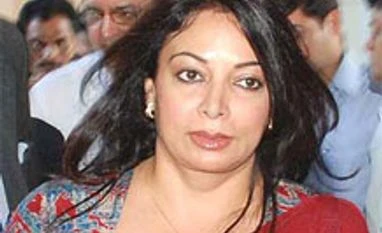In a rare case, the Supreme Court today conducted two-hour-long in-camera proceedings in the former corporate lobbyist Niira Radia phone tapping case for knowing the Centre's stand and perusing "top secret" documents which formed the basis for interception of her calls.
The proceedings before a bench of justices G S Singhvi and V Gopala Gowda, began from 10.30 AM and went on till 12.30 PM during which two additional solicitor generals, CBI, Income Tax Department and Home Ministry officers were allowed into the court room but all advocates appearing for different parties, journalists and others were barred.
The bench concluded the in-camera proceedings and posted the matter for an open court hearing on October 1.
Although in-camera proceedings are normal in trial courts in sensitive cases, in the Supreme Court this is the second time that such hearing is being conducted in recent years. The last time such a proceeding took place in the apex court was in the hawala case in 1996.
The apex court had decided on in-camera hearing after it found that many controversial and sensitive information and names of people figure in the various reports disclosure of which in public domain could harm national interest and could tarnish the image of people till they were established.
Today's in-camera proceedings were confined to the bench perusing the government's confidential report and the Centre's submission on the issue.
The proceedings before a bench of justices G S Singhvi and V Gopala Gowda, began from 10.30 AM and went on till 12.30 PM during which two additional solicitor generals, CBI, Income Tax Department and Home Ministry officers were allowed into the court room but all advocates appearing for different parties, journalists and others were barred.
The bench concluded the in-camera proceedings and posted the matter for an open court hearing on October 1.
Also Read
The bench had on August 27 decided to hold in-camera proceedings in the case.
Although in-camera proceedings are normal in trial courts in sensitive cases, in the Supreme Court this is the second time that such hearing is being conducted in recent years. The last time such a proceeding took place in the apex court was in the hawala case in 1996.
The apex court had decided on in-camera hearing after it found that many controversial and sensitive information and names of people figure in the various reports disclosure of which in public domain could harm national interest and could tarnish the image of people till they were established.
Today's in-camera proceedings were confined to the bench perusing the government's confidential report and the Centre's submission on the issue.
)